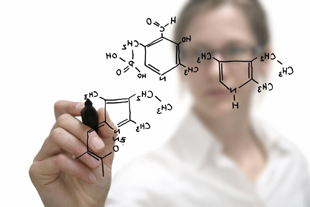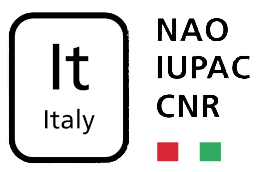IUPAC The International Union of Pure and Applied Chemistry

IUPAC: The International Union of Pure and Applied Chemistry (IUPAC) was established in 1919 with the aim of promoting exchanges between chemists from all over the world, also through the creation of a common and standardized language. Today, in addition to being the world authority for the nomenclature of chemical compounds and the definition of chemical and chemical-physical quantities, the Union is an important international, non-governmental and impartial scientific organization, committed to providing objective scientific expertise and developing the essential tools for the application and communication of chemical knowledge for the benefit of both humankind and the world, with great attention to sustainable development, young people and inclusiveness (http://www.iupac.org/). As a whole, 58 nations adhere to IUPAC, including Italy, which is one of the 5 founding countries.
National Representation: The National Research Council (CNR) represents Italy in IUPAC and it is configured as National Adhering Organization, NAO. The Italian CNR Commission for IUPAC, established for the first time in 2013, is appointed by the President of the CNR to carry out the tasks of NAO. The Commission was renewed in 2019 and will remain in office until 2022. The President of the CNR appoints the Delegate and the Substitute Delegate at IUPAC. The formal aspects are handled by the European and International Relations Office of the CNR (https://www.cnr.it/en/international-scientific-organization/42).
The 2023-26 Commission, in continuity with the precedent one, acts as a point of reference for all Italian chemists, whether they are active in universities, research institutions, and industry, to promote participation in the many scientific initiatives that IUPAC coordinates and organizes, in a spirit of sharing and pluralism.
In synergy with the international commitment of IUPAC, the current Commission has taken as its priority activity the promotion and development of CHEMISTRY for SUSTAINABILITY, ETHICS and PEACE.
The aim is to contribute to sustainable development with the intent of improving the daily life of humankind preserving, at the same time, our planet for future generations. Today this is a goal to which all social, economic, scientific and technological realities must work with the utmost commitment. The synergy between sectors and the indispensable role of research - and especially of chemistry - clearly emerge from the 17 objectives that constitute the heart of the 2030 Agenda for sustainable development, adopted by all UN member states in 2015 (https: // sdgs.un.org/goals, https://www.onuitalia.it/sdg/).
The role of Chemistry: Chemistry can and must play a key role in building a sustainable development, applying and promoting peace, equal opportunities and inclusivity and, more technically, designing and creating products and processes with low or zero environmental impact for each of the essential aspects of our life, such as the transition to renewable energy, the protection of the planet, the health of citizens, the recycling of waste and the development of an efficient and pervasive circular economy.
The Commission, in favoring the participation of Italian chemists in IUPAC, will undertake, in particular by making use of all its components, to support and promote scientific research and communication initiatives, especially those conducted by young researchers, aimed at increasing the contribution of chemistry to sustainable development.










